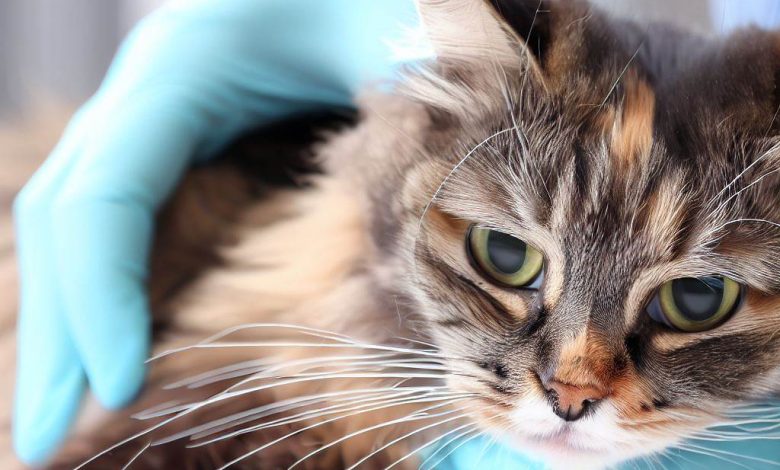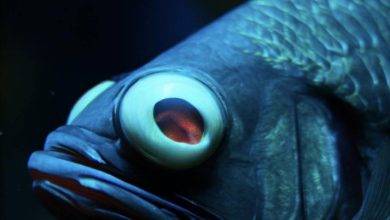When to Euthanize a Cat with Feline Leukemia

Deciding when to euthanize a cat with feline leukemia is a tough choice. It’s a decision that requires compassion, careful consideration, and guidance. This article aims to provide support by exploring various aspects related to euthanasia for cats with feline leukemia. Keep in mind that consulting with a trusted veterinarian who understands your cat’s unique circumstances is crucial in making an informed decision.
When to Euthanize a Cat with Feline Leukemia? The decision to euthanize a cat with feline leukemia (FeLV) is a deeply personal one that should be made in consultation with a veterinarian, considering the cat’s quality of life, disease progression, veterinary guidance, and financial/emotional considerations.
Understanding Feline Leukemia: Symptoms, Progression, and Prognosis
Feline leukemia is a viral infection that affects cats, and understanding its symptoms, progression, and prognosis is essential when considering euthanasia. Take the time to educate yourself about the disease’s common signs, such as weight loss, decreased appetite, lethargy, and recurring infections.
By discussing your cat’s specific condition with your veterinarian, you can gain a deeper understanding of the disease’s potential impact on their overall well-being.
How can I save my cat from leukemia?
Unfortunately, there is currently no cure for feline leukemia. However, you can focus on providing supportive care and maximizing your cat’s quality of life.
Work closely with your veterinarian to establish a management plan that may include a balanced diet, regular health check-ups, vaccinations against preventable diseases, and proactive treatment of any secondary infections.
Additionally, minimizing stress and providing a comfortable and enriched environment can contribute to your cat’s well-being. Ultimately, the goal is to ensure your cat’s comfort and happiness for as long as possible.
Also Read: Best meal to feed your cat to avoid illness
What’s the longest a cat can live with feline leukemia?
The lifespan of a cat with feline leukemia can vary. Some cats may live for several months to a few years after diagnosis, especially with supportive care and management of symptoms.
However, it’s important to note that feline leukemia is a progressive disease, and the prognosis generally becomes more guarded as the disease advances. Regular monitoring, appropriate medical interventions, and a focus on maintaining the cat’s quality of life can contribute to longer survival times.
How long does it take for a cat to fight off feline leukemia?
While some cats can naturally fight off feline leukemia infections and become non-viremic (no longer carrying the virus in their bloodstream), this is relatively uncommon.
Typically, if a cat is unable to clear the infection within a few months after exposure, it may remain persistently infected for life. However, each cat’s ability to fight off the virus can vary based on its immune response.
Consulting a Veterinarian
When it comes to managing feline leukemia, your veterinarian is an invaluable resource. Schedule a consultation to discuss your cat’s condition, potential treatment options, and long-term prognosis.
Your veterinarian’s expertise and experience will help guide you in making the best decision for your beloved companion. Openly share your concerns, hopes, and fears, as this will enable your veterinarian to better understand your unique situation.
Assessing the Cat’s Quality of Life: Indicators for Euthanasia
One crucial factor in the decision to euthanize a cat with feline leukemia is its quality of life. Take a step back and assess your cat’s overall well-being, considering its ability to engage in normal behaviors, its level of pain or discomfort, and its enjoyment of daily activities.
It may be helpful to create a checklist of indicators, such as appetite, mobility, grooming, and social interaction, to objectively evaluate their quality of life. Your veterinarian can provide guidance on assessing these indicators and determining if euthanasia is the most compassionate choice.
Weighing the Benefits and Risks of Euthanasia for Feline Leukemia
Euthanasia is a deeply personal decision that prioritizes your cat’s welfare. Take the time to carefully weigh the benefits and risks of euthanasia against potential alternative options, such as palliative care or aggressive treatment.
Consider the long-term prognosis, potential side effects of treatments, financial implications, and the impact on your cat’s overall well-being. Engage in open conversations with your veterinarian and loved ones for support and different perspectives. Remember, the goal is to make the most compassionate decision for your cat’s comfort and quality of life.
Emotional Considerations
The emotional toll of deciding to euthanize a cat with feline leukemia should not be underestimated. It is normal to experience grief, guilt, and sadness during this challenging time. Seek support from friends, family, or even online communities dedicated to pet loss and grief.
Consider reaching out to a counselor or therapist specializing in pet bereavement to help navigate your emotions and find solace during this difficult process. Remember, your feelings are valid, and it’s important to take care of yourself while making these challenging decisions.
Timing the Decision
Determining the right time for euthanasia is an individual decision. Consult with your veterinarian about the disease’s progression, your cat’s symptoms, and their overall quality of life. Together, assess the balance between providing your cat with a comfortable and peaceful passing and avoiding unnecessary suffering.
Trust your instincts and seek guidance from your veterinarian to determine when the time feels right. Remember, you know your cat best, and your veterinarian can offer valuable insights to help you make an informed decision.
Ensuring a Peaceful Process
When the decision is made to euthanize your cat, it is essential to find a compassionate veterinarian who can provide a calm and peaceful environment for both you and your feline companion. Research veterinary clinics in your area read reviews, and ask for recommendations from trusted sources.
Reach out to the chosen veterinarian in advance to discuss your wishes and ensure they understand the importance of a compassionate approach. A supportive and understanding veterinarian can make a significant difference in this challenging time.
Aftercare and Support: Coping with the Loss of a Cat with Feline Leukemia
After the loss of your beloved cat, it’s important to allow yourself time to grieve and heal. Surround yourself with support from loved ones who understand the depth of your loss.
Consider memorializing your cat in a meaningful way, such as creating a scrapbook, planting a tree in their honor, or making a donation to a feline leukemia research or support organization. Remember, everyone, grieves differently, so give yourself the space and time to heal at your own pace.
Resources and Support Groups
Throughout this journey, you are not alone. Numerous resources and support groups are available to help you navigate the complex decision-making process and cope with the loss of your cat. Online communities, local pet loss support groups, and grief counseling services can provide understanding, empathy, and guidance. Seek out these resources to find comfort, share your experiences, and connect with others who have gone through similar situations.
Conclusion
Deciding when to euthanize a cat with feline leukemia is a callous decision. By educating yourself about the disease, consulting with a trusted veterinarian, assessing your cat’s quality of life, and seeking support, you can approach this decision with empathy and love for your feline companion.
Remember, the goal is to prioritize your cat’s comfort and well-being, ensuring they have a peaceful passing free from unnecessary suffering.
Please note that the information provided here is for general knowledge and guidance. Always consult your veterinarian for specific advice regarding your cat’s condition, as they can provide the most accurate information and recommendations tailored to your cat’s unique needs.





